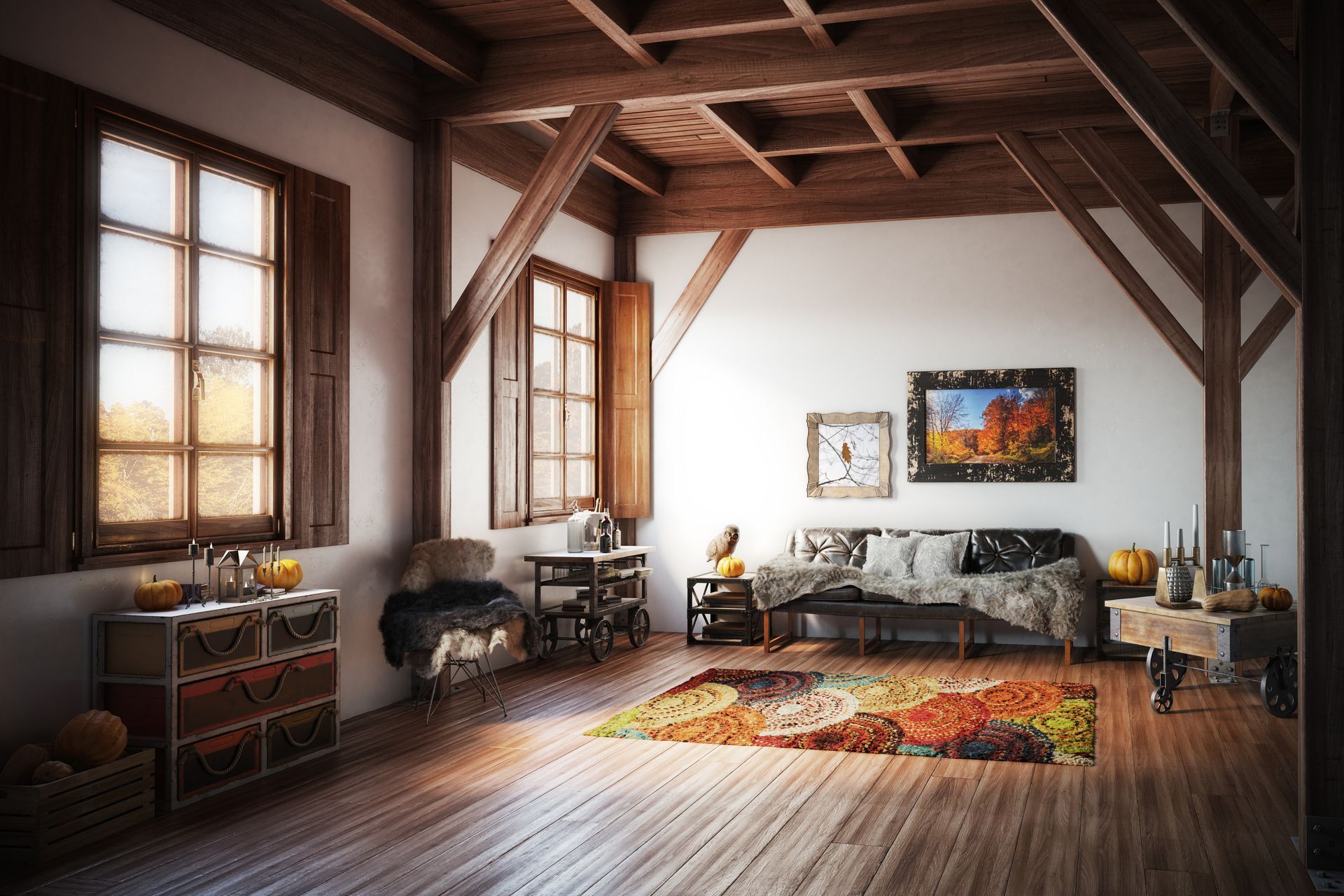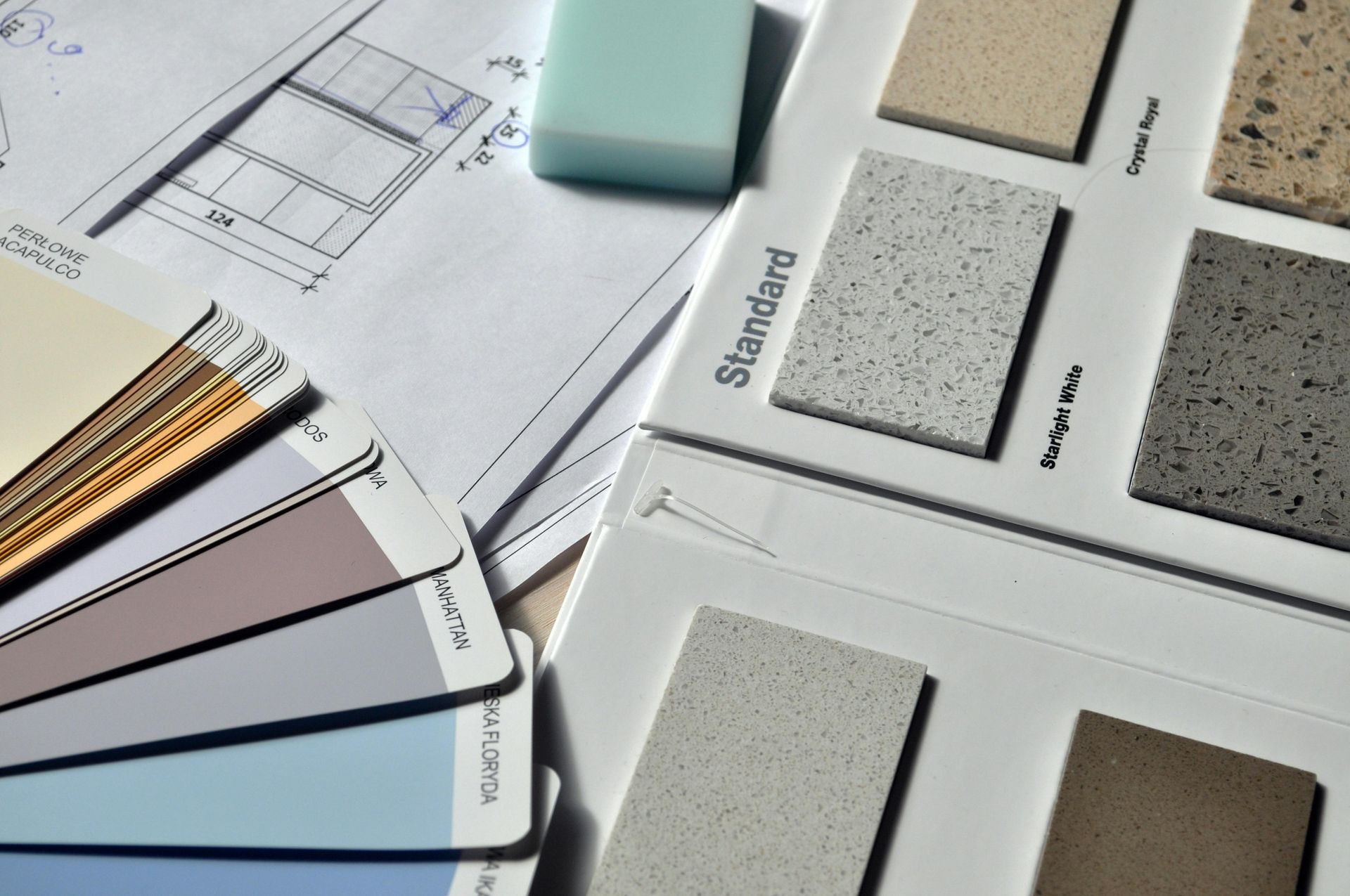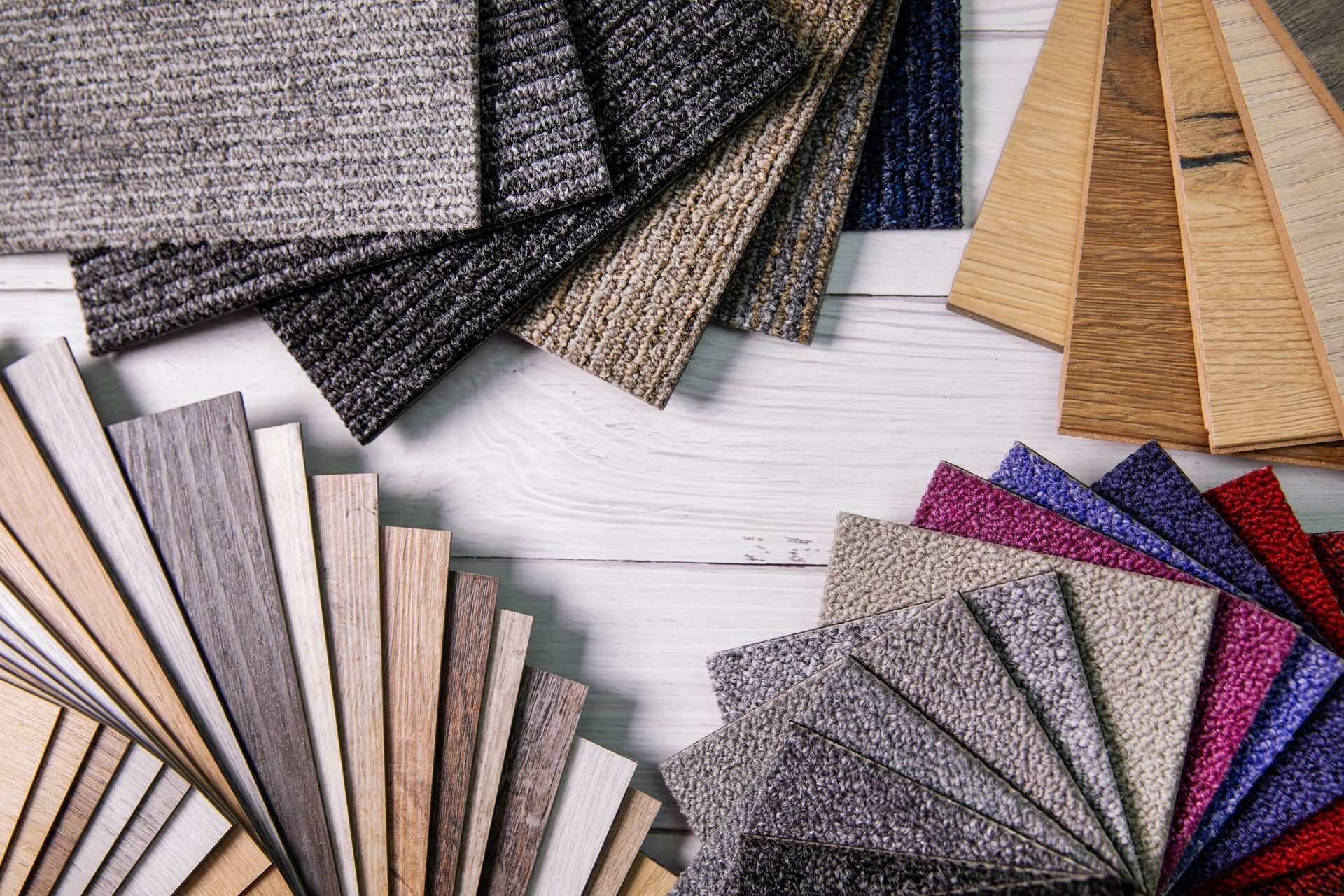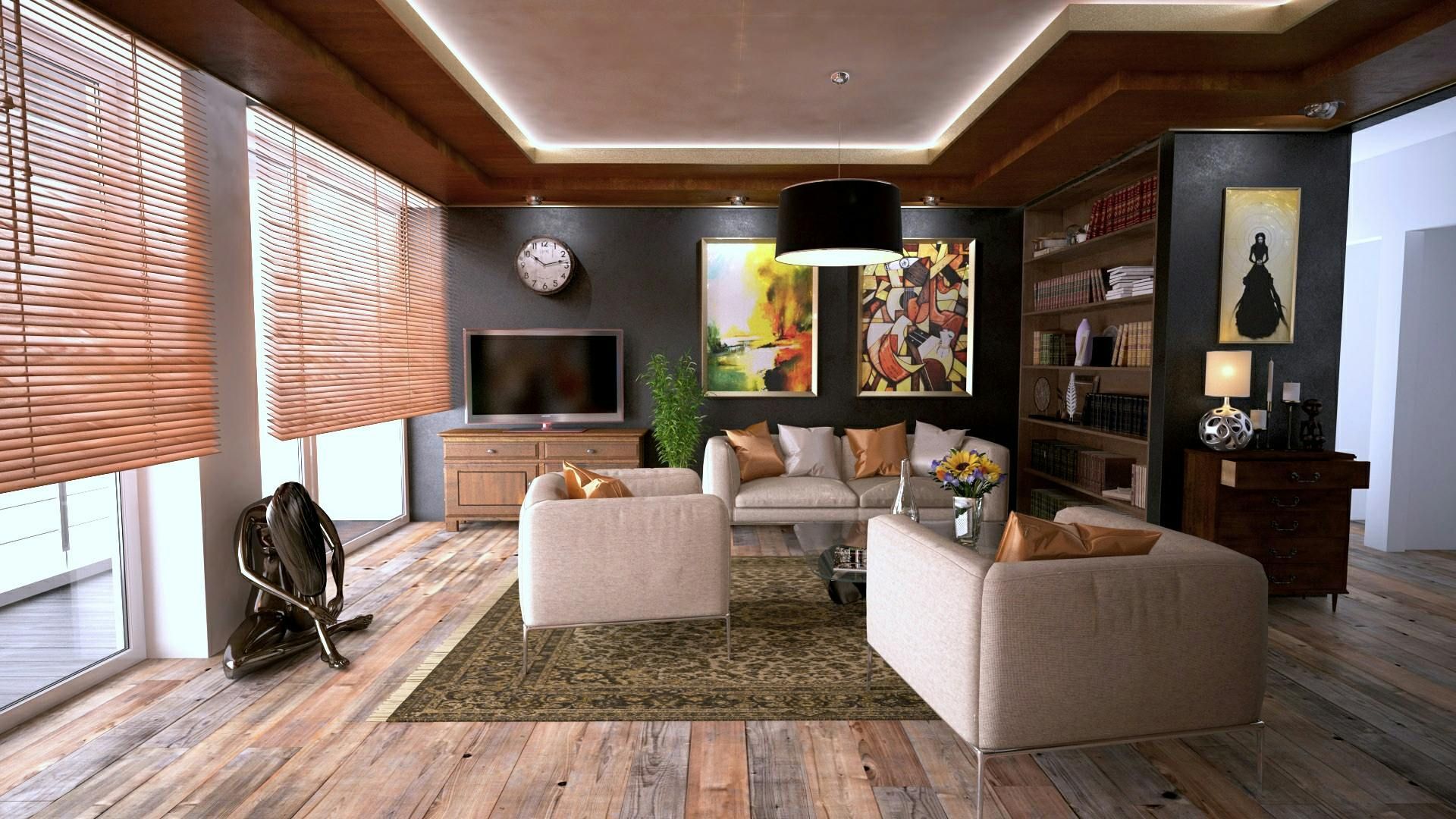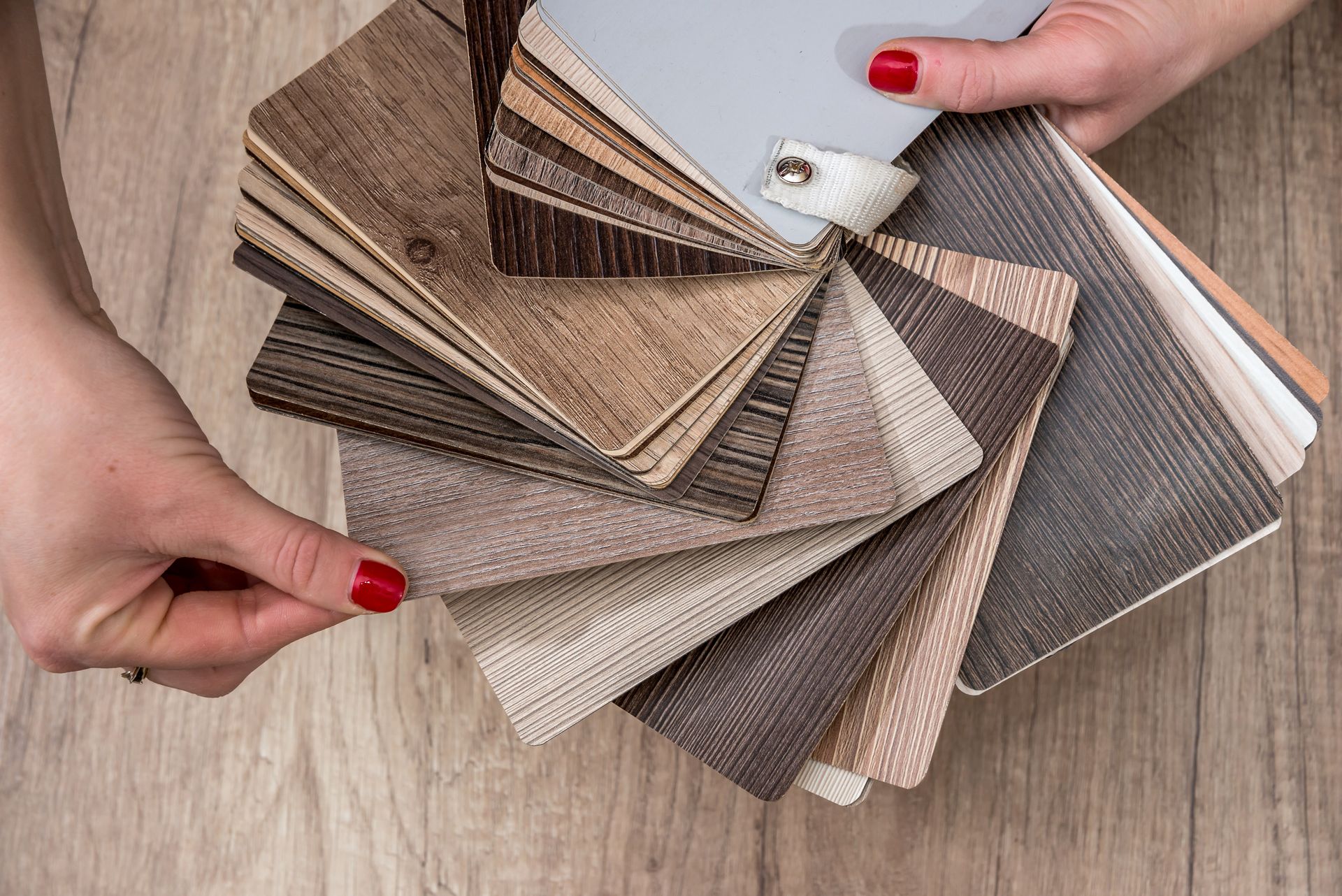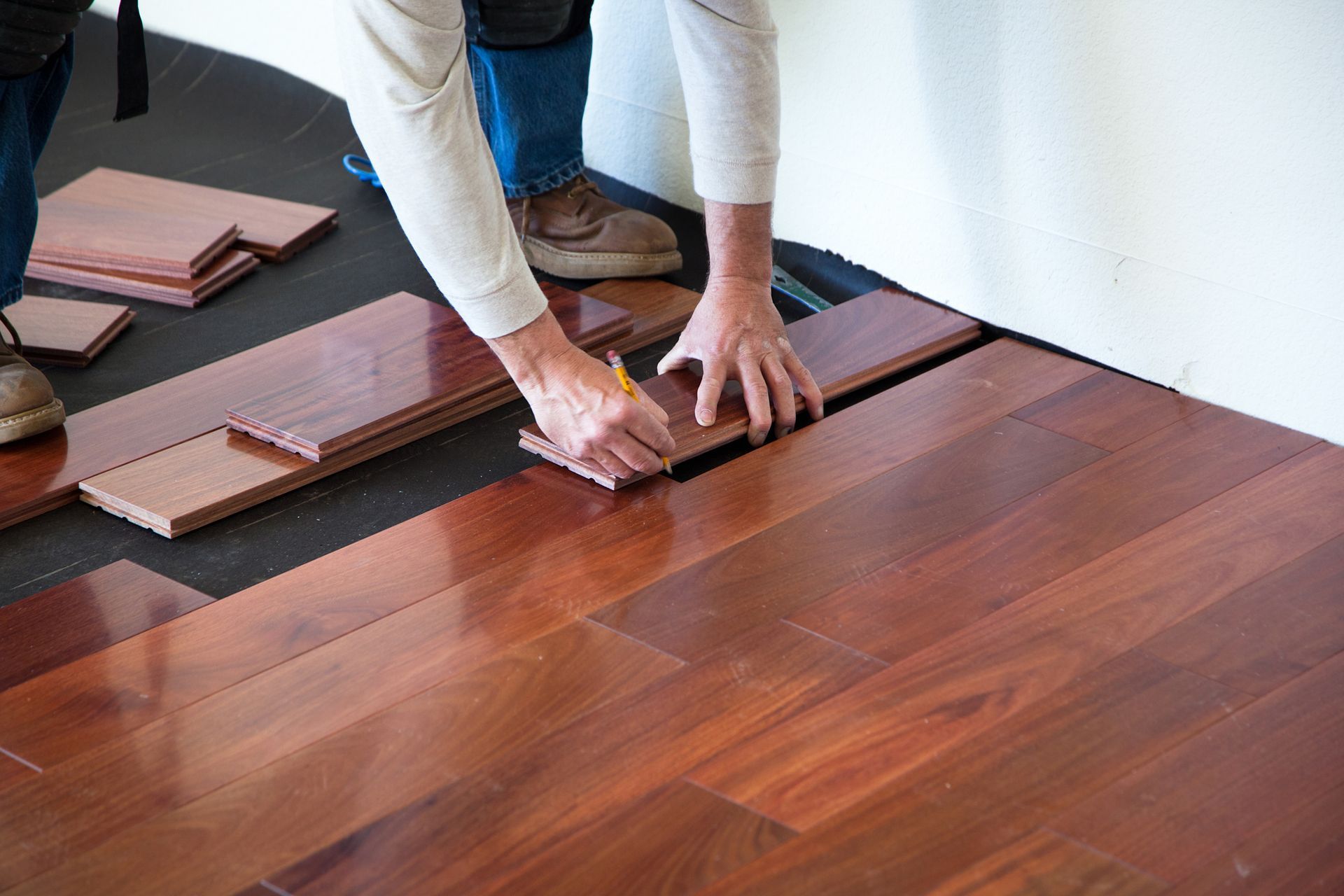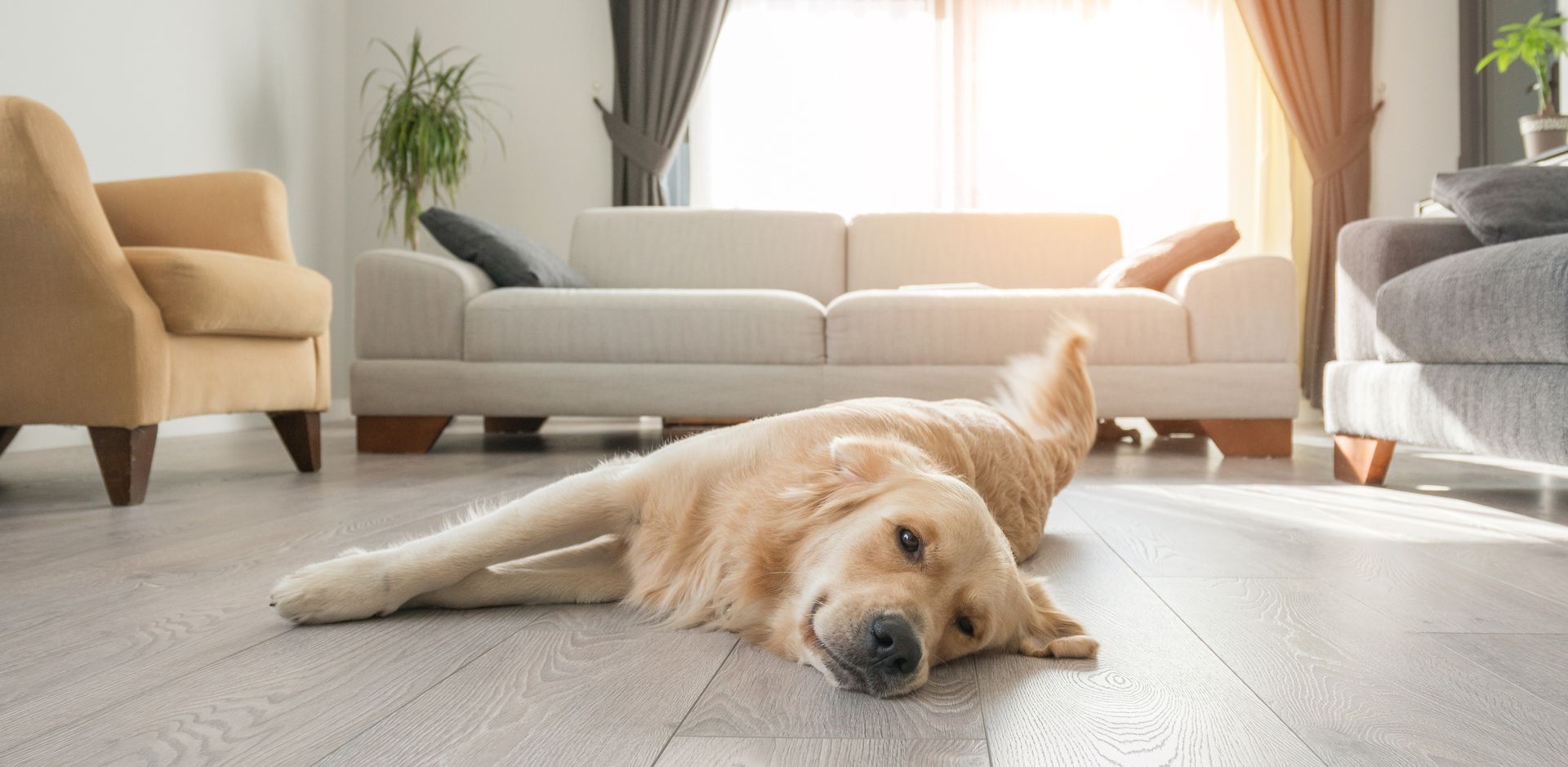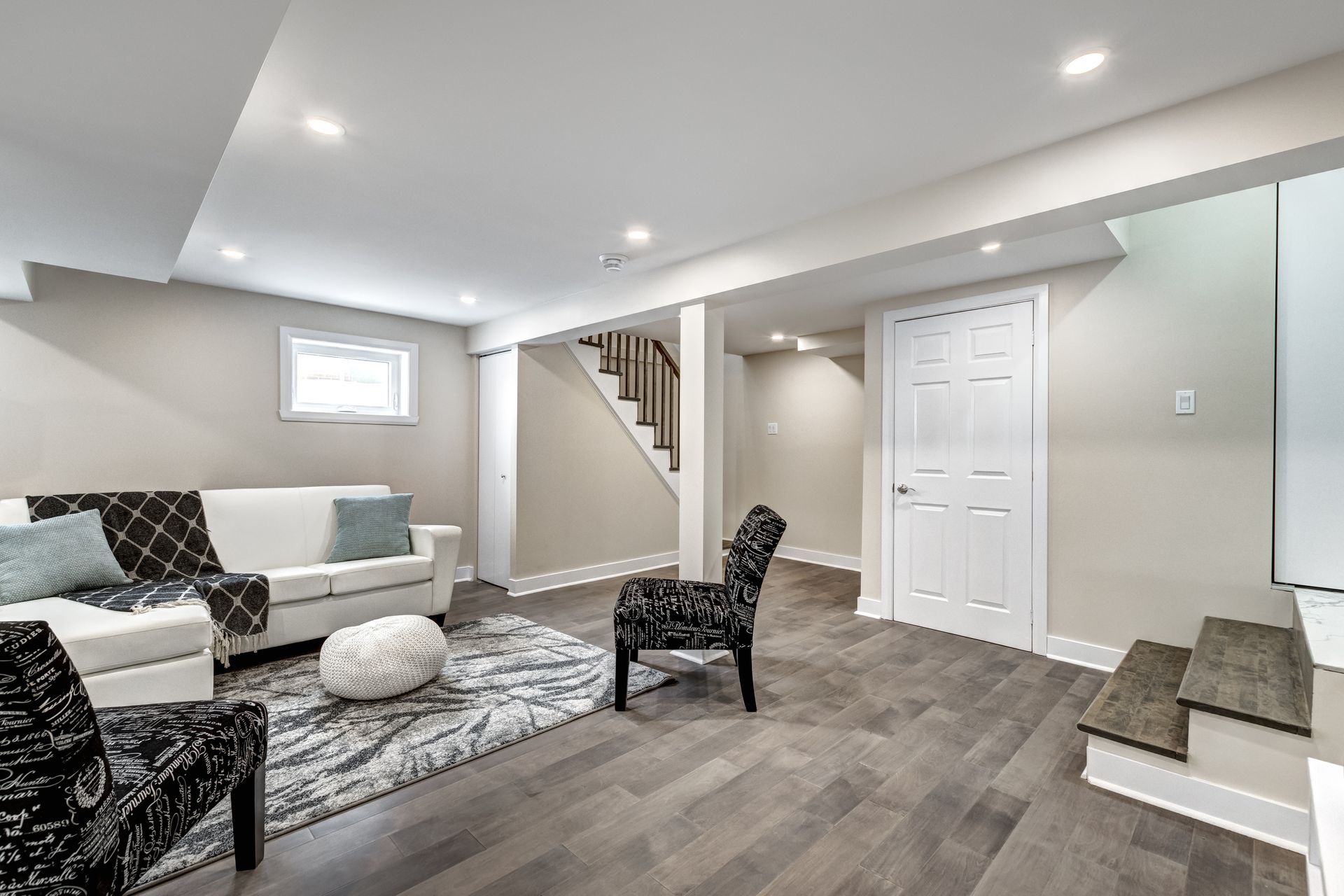
The Best Flooring Options for Your Basement
Choosing the right flooring for your basement is crucial. Whether you're transforming an unfinished basement into a cozy living space or updating an existing one, the flooring you select will impact both the aesthetics and functionality of the area.
In this article we'll explore the best flooring options for basements, focusing on waterproof and moisture-resistant choices, as well as durable and low-maintenance alternatives. By the end, you'll have a clear understanding of which flooring solutions best suit your needs.
1. Waterproof and Moisture-Resistant Flooring Options
Luxury Vinyl Planks (LVP)
Luxury Vinyl Planks (LVP) are an excellent choice for basement flooring due to their waterproof nature. LVP mimics the look of natural wood or stone and provides a warm, inviting feel. It's also highly resistant to moisture, making it ideal for basements that may be prone to dampness.
Installed using a click-and-lock system, LVP can be laid over existing floors without adhesives, making installation a breeze.
Tip: Look for LVP with a rigid core for added stability and durability.
Ceramic or Porcelain Tiles
Ceramic and porcelain tiles are another fantastic option for basement flooring. These materials are impervious to water, making them perfect for areas with high humidity or occasional flooding. They come in a wide range of styles, colors, and patterns, allowing you to customize your basement's look to match your design preferences.
Example: Homeowners in Hamilton who frequently deal with basement moisture issues often turn to Hamilton Flooring Specialists for their tile installation needs.
Epoxy Sealed Concrete
Epoxy-sealed concrete floors offer a sleek, modern finish that's both waterproof and highly durable. This flooring method involves applying an epoxy coating to a concrete slab, creating a seamless, non-porous surface. Epoxy flooring is resistant to stains, chemicals, and water, making it a practical choice for basements that double as workshops or laundry rooms.
Stat: According to a study by Dobi Design Co, epoxy-sealed floors can last up to 20 years with proper maintenance.
2. Durable and Low-Maintenance Flooring Choices
Engineered Wood
Unlike solid hardwood, engineered wood is made from layers of plywood topped with a hardwood veneer. This construction makes it more stable and less prone to warping in humid conditions. Engineered wood provides the beauty of real wood while offering better moisture resistance, making it suitable for basements.
Tip: Opt for engineered wood with a thicker wear layer for enhanced durability.
Laminate Flooring
Laminate flooring is another popular choice for basements. It consists of a photographic layer that mimics the appearance of wood, stone, or tile, topped with a protective wear layer. Laminate is easy to install, affordable, and resistant to scratches and dents. While not entirely waterproof, many modern laminates have water-resistant properties, suitable for basements with controlled humidity levels.
Example: Many Hamilton homeowners choose laminate flooring for its balance of cost and aesthetics, often consulting Hamilton Flooring Specialists for expert advice.
Rubber Flooring
Rubber flooring is a durable and low-maintenance option, perfect for basements used as playrooms, gyms, or recreational areas. It's water-resistant, easy to clean, and provides a cushioned surface that reduces noise and impact. Rubber flooring comes in rolls or tiles, with a variety of colors and textures available to suit your design needs.
Stat: According to a report by Dobi Design Co, rubber flooring can last up to 15 years in high-traffic areas with minimal maintenance.
3. Considerations for Installation and Cost
When choosing basement flooring, it's essential to consider both the installation process and the associated costs. Some flooring options, like LVP and laminate, are DIY-friendly and can save you money on installation. Others, such as ceramic tiles and epoxy-sealed concrete, may require professional installation, adding to the overall expense.
Tip: Always factor in the cost of underlayment, moisture barriers, and any necessary floor preparation when budgeting for your basement flooring project.
4. Pros and Cons of Top Basement Flooring Choices
Luxury Vinyl Planks (LVP)
- Pros: Waterproof, easy to install, realistic appearance, comfortable underfoot
- Cons: Can be expensive, may dent under heavy furniture
Ceramic or Porcelain Tiles
- Pros: Waterproof, durable, wide range of design options
- Cons: Hard underfoot, can be cold, requires professional installation
Epoxy Sealed Concrete
- Pros: Waterproof, highly durable, modern look
- Cons: Professional installation required, can be slippery when wet
Engineered Wood
- Pros: Real wood appearance, more stable than solid wood, moisture-resistant
- Cons: Higher cost, susceptible to scratches
Laminate Flooring
- Pros: Affordable, easy to install, scratch-resistant
- Cons: Not entirely waterproof, can be noisy without underlayment
Rubber Flooring
- Pros: Durable, water-resistant, cushioned surface
- Cons: Limited design options, can be expensive
When it comes to choosing the best flooring for your basement, there are several factors to consider, including moisture resistance, durability, and cost. Whether you opt for the waterproof capabilities of Luxury Vinyl Planks, the elegance of ceramic tiles, or the practicality of epoxy-sealed concrete, each option offers unique benefits.
For personalized advice tailored to your specific needs, consult with Hamilton Flooring Specialists at Dobi Design Co. Transform your basement into a functional and stylish space with the right flooring choice today.Choosing the right flooring for your basement is crucial.
Whether you're transforming an unfinished basement into a cozy living space or updating an existing one, the flooring you select will impact both the aesthetics and functionality of the area.
In this listicle, we'll explore the best flooring options for basements, focusing on waterproof and moisture-resistant choices, as well as durable and low-maintenance alternatives. By the end, you'll have a clear understanding of which flooring solutions best suit your needs.
1. Waterproof and Moisture-Resistant Flooring Options
Luxury Vinyl Planks (LVP)
Luxury Vinyl Planks (LVP) are an excellent choice for basement flooring due to their waterproof nature. LVP mimics the look of natural wood or stone and provides a warm, inviting feel. It's also highly resistant to moisture, making it ideal for basements that may be prone to dampness. Installed using a click-and-lock system, LVP can be laid over existing floors without adhesives, making installation a breeze.
Tip: Look for LVP with a rigid core for added stability and durability.
Ceramic or Porcelain Tiles
Ceramic and porcelain tiles are another fantastic option for basement flooring. These materials are impervious to water, making them perfect for areas with high humidity or occasional flooding. They come in a wide range of styles, colors, and patterns, allowing you to customize your basement's look to match your design preferences.
Example: Homeowners in Hamilton who frequently deal with basement moisture issues often turn to Hamilton Flooring Specialists for their tile installation needs.
Epoxy Sealed Concrete
Epoxy-sealed concrete floors offer a sleek, modern finish that's both waterproof and highly durable. This flooring method involves applying an epoxy coating to a concrete slab, creating a seamless, non-porous surface. Epoxy flooring is resistant to stains, chemicals, and water, making it a practical choice for basements that double as workshops or laundry rooms.
Stat: According to a study by Dobi Design Co, epoxy-sealed floors can last up to 20 years with proper maintenance.
2. Durable and Low-Maintenance Flooring Choices
Engineered Wood
Unlike solid hardwood, engineered wood is made from layers of plywood topped with a hardwood veneer. This construction makes it more stable and less prone to warping in humid conditions. Engineered wood provides the beauty of real wood while offering better moisture resistance, making it suitable for basements.
Tip: Opt for engineered wood with a thicker wear layer for enhanced durability.
Laminate Flooring
Laminate flooring is another popular choice for basements. It consists of a photographic layer that mimics the appearance of wood, stone, or tile, topped with a protective wear layer. Laminate is easy to install, affordable, and resistant to scratches and dents. While not entirely waterproof, many modern laminates have water-resistant properties, suitable for basements with controlled humidity levels.
Example: Many Hamilton homeowners choose laminate flooring for its balance of cost and aesthetics, often consulting Hamilton Flooring Specialists for expert advice.
Rubber Flooring
Rubber flooring is a durable and low-maintenance option, perfect for basements used as playrooms, gyms, or recreational areas. It's water-resistant, easy to clean, and provides a cushioned surface that reduces noise and impact. Rubber flooring comes in rolls or tiles, with a variety of colors and textures available to suit your design needs.
Stat: According to a report by Dobi Design Co, rubber flooring can last up to 15 years in high-traffic areas with minimal maintenance.
3. Considerations for Installation and Cost
When choosing basement flooring, it's essential to consider both the installation process and the associated costs. Some flooring options, like LVP and laminate, are DIY-friendly and can save you money on installation. Others, such as ceramic tiles and epoxy-sealed concrete, may require professional installation, adding to the overall expense.
Tip: Always factor in the cost of underlayment, moisture barriers, and any necessary floor preparation when budgeting for your basement flooring project.
4. Pros and Cons of Top Basement Flooring Choices
Luxury Vinyl Planks (LVP)
- Pros: Waterproof, easy to install, realistic appearance, comfortable underfoot
- Cons: Can be expensive, may dent under heavy furniture
Ceramic or Porcelain Tiles
- Pros: Waterproof, durable, wide range of design options
- Cons: Hard underfoot, can be cold, requires professional installation
Epoxy Sealed Concrete
- Pros: Waterproof, highly durable, modern look
- Cons: Professional installation required, can be slippery when wet
Engineered Wood
- Pros: Real wood appearance, more stable than solid wood, moisture-resistant
- Cons: Higher cost, susceptible to scratches
Laminate Flooring
- Pros: Affordable, easy to install, scratch-resistant
- Cons: Not entirely waterproof, can be noisy without underlayment
Rubber Flooring
- Pros: Durable, water-resistant, cushioned surface
- Cons: Limited design options, can be expensive
When it comes to choosing the best flooring for your basement, there are several factors to consider, including moisture resistance, durability, and cost. Whether you opt for the waterproof capabilities of Luxury Vinyl Planks, the elegance of ceramic tiles, or the practicality of epoxy-sealed concrete, each option offers unique benefits.
For personalized advice tailored to your specific needs, consult with Hamilton Flooring Specialists at Dobi Design Co. Transform your basement into a functional and stylish space with the right flooring choice today.
Found this article interesting? Why not share it?


